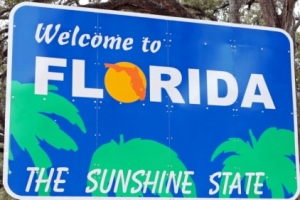 Florida’s failure to adopt worker safeguards in the wake of a deadly methanol fire and explosion is “unacceptable.”
Florida’s failure to adopt worker safeguards in the wake of a deadly methanol fire and explosion is “unacceptable.”In a statement released yesterday, the ASSE commended the CSB for “its commitment to the safety and health of thousands of Florida’s state, county and municipal workers.” The recommendations made by the CSB followed an investigation into a January 2006 methanol fire and explosion at the Bethune Wastewater Treatment plant in Daytona Beach that killed two public workers and seriously injured a third.
The CSB urged Florida to provide federal-level workplace protections for its public sector workers. ASSE member-led efforts in Florida resulted in the establishment by the Florida legislature of a task force that, in 2008, made recommendations to the governor and the legislature on how to protect Florida’s public sector workers. Those recommendations resulted in the only effort in the nation to advance workplace safety and health protections through legislation supported by business, labor and the profession. In 2009, a bill to enact those recommendations passed the Florida House but was not heard in the Senate.
Earlier this week, the CSB closed the case, labeling Florida’s inaction an “Unacceptable Response” – the first-ever use of that designation.
“Protecting workers on the job saves money”
“Beyond the obvious moral responsibility to protect its workers, at a time when taxpayers are looking for government to be as efficient and cost-effective as business, the most basic risk-management tool most businesses understand is that protecting workers on the job saves money,” said Terrie S. Norris, CSP, ARM, ASSE President. He said Florida should hold itself, its counties and municipalities accountable for the tangible and intangible costs associated with ignoring workplace safety and health risks. “No one really knows how much Florida taxpayers are paying for workers’ injuries and illnesses, lost days and workers compensation costs. The time has come for those costs to see the light of day.”
Federal law exempts public sector workers from protections under the Occupational Safety and Health Act of 1970 in states that do not have federally approved occupational safety and health programs. About eight million public sector workers across the U.S. do not have the same workplace safety and health protections guaranteed all other workers under federal law. Florida’s public sector safety and health program was disbanded in 2000.